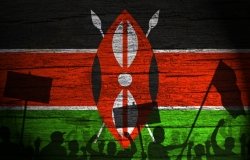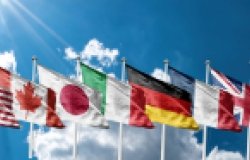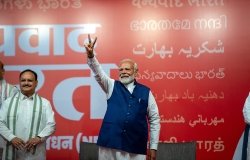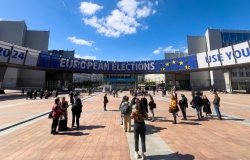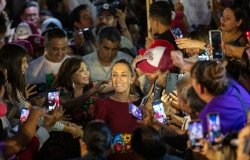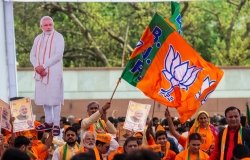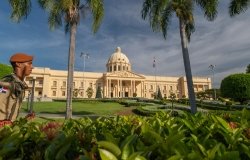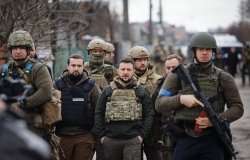The Arab Spring in Comparative Perspective
“The Arab Spring in Comparative Perspective: Dramatic Transitions in Recent Decades” conference took place on June 4th and 5th in Washington, D.C., co-organized by American University’s School of International Service, the University of Toronto’s Munk School of Global Affairs, and the Woodrow Wilson Center for International Scholars’ Brazil Institute, Global Europe Program, Mexico Institute, and Middle East Studies Program. The aim of this initial workshop was to consider dramatic transitional experiences in Brazil, Mexico, Turkey, and Eastern Europe and included a series of panels examining specific facets of transitional experiences: constitutional developments (including democratic reforms); economic and social affairs; justice and human rights issues; the evolving experiences of women; external pressures and interventions. In each case, a commentator with expertise on the Middle East and North Africa was asked to reflect on the possible relevance of other “transitional” experiences to understanding the dynamics and prospects of the “Arab Spring.” These reflections also served as the primary task of the workshop’s concluding Round Table discussion.
Overview
“The Arab Spring in Comparative Perspective: Dramatic Transitions in Recent Decades” conference took place on June 4th and 5th in Washington, D.C., co-organized by American University’s School of International Service, the University of Toronto’s Munk School of Global Affairs, and the Woodrow Wilson Center for International Scholars’ Brazil Institute, Global Europe Program, Mexico Institute, and Middle East Studies Program. The aim of this initial workshop was to consider dramatic transitional experiences in Brazil, Mexico, Turkey, and Eastern Europe and included a series of panels examining specific facets of transitional experiences: constitutional developments (including democratic reforms); economic and social affairs; justice and human rights issues; the evolving experiences of women; external pressures and interventions. In each case, a commentator with expertise on the Middle East and North Africa was asked to reflect on the possible relevance of other “transitional” experiences to understanding the dynamics and prospects of the “Arab Spring.” These reflections also served as the primary task of the workshop’s concluding Round Table discussion.
Hosted By

Global Europe Program
The Global Europe Program is focused on Europe’s capabilities, and how it engages on critical global issues. We investigate European approaches to critical global issues. We examine Europe’s relations with Russia and Eurasia, China and the Indo-Pacific, the Middle East and Africa. Our initiatives include “Ukraine in Europe” – an examination of what it will take to make Ukraine’s European future a reality. But we also examine the role of NATO, the European Union and the OSCE, Europe’s energy security, transatlantic trade disputes, and challenges to democracy. The Global Europe Program’s staff, scholars-in-residence, and Global Fellows participate in seminars, policy study groups, and international conferences to provide analytical recommendations to policy makers and the media. Read more

Mexico Institute
The Mexico Institute seeks to improve understanding, communication, and cooperation between Mexico and the United States by promoting original research, encouraging public discussion, and proposing policy options for enhancing the bilateral relationship. A binational Advisory Board, chaired by Luis Téllez and Earl Anthony Wayne, oversees the work of the Mexico Institute. Read more

Middle East Program
The Wilson Center’s Middle East Program serves as a crucial resource for the policymaking community and beyond, providing analyses and research that helps inform US foreign policymaking, stimulates public debate, and expands knowledge about issues in the wider Middle East and North Africa (MENA) region. Read more
Thank you for your interest in this event. Please send any feedback or questions to our Events staff.
